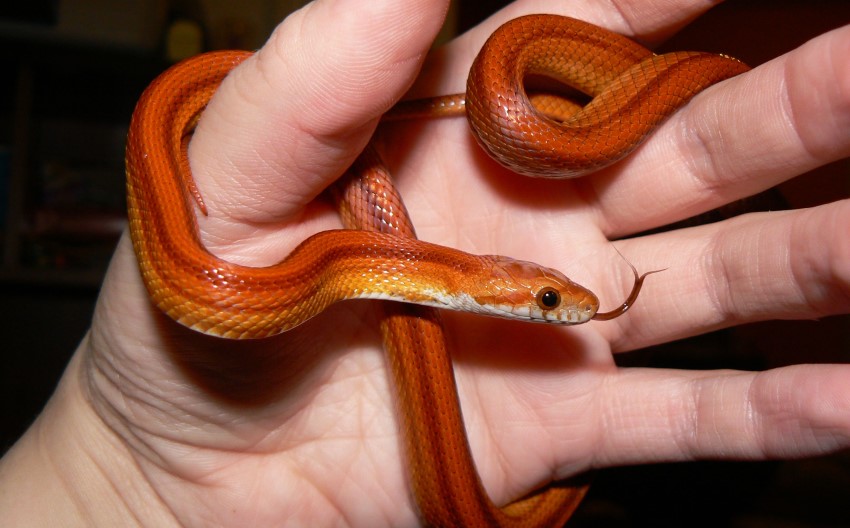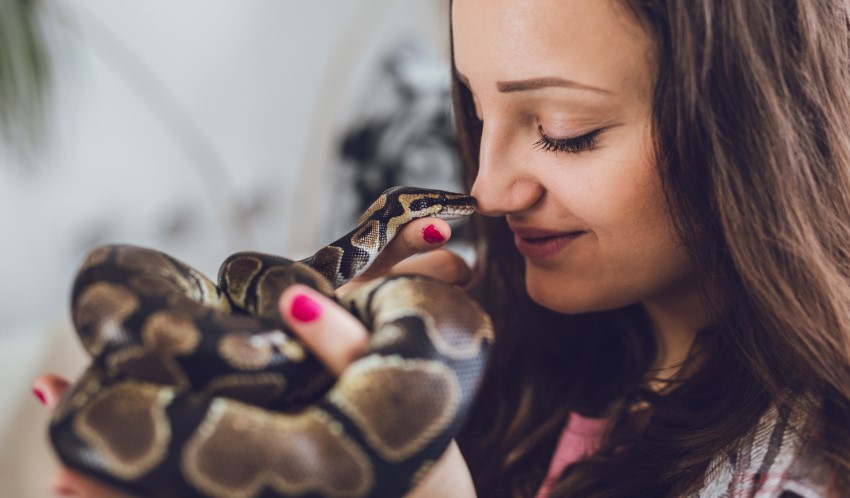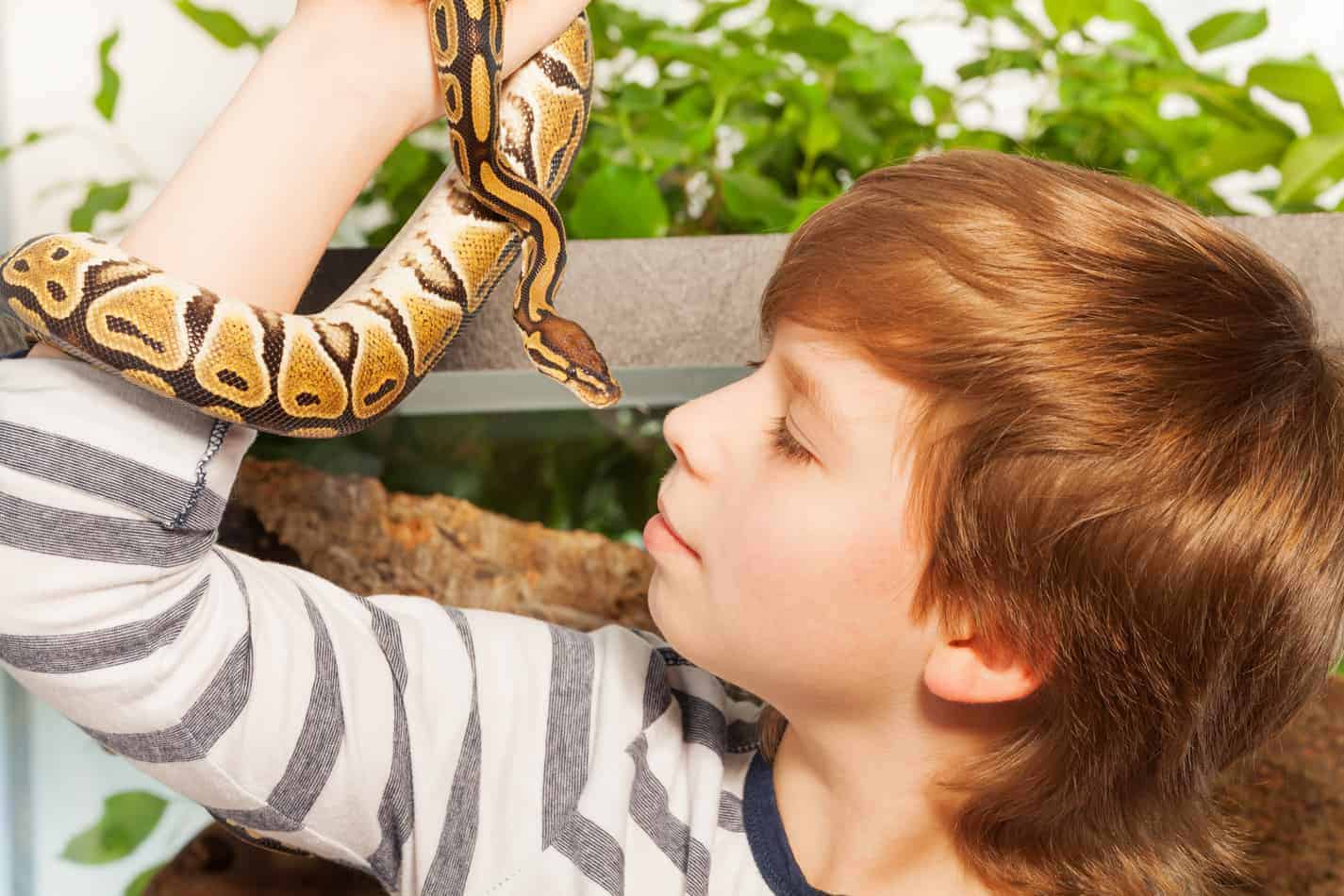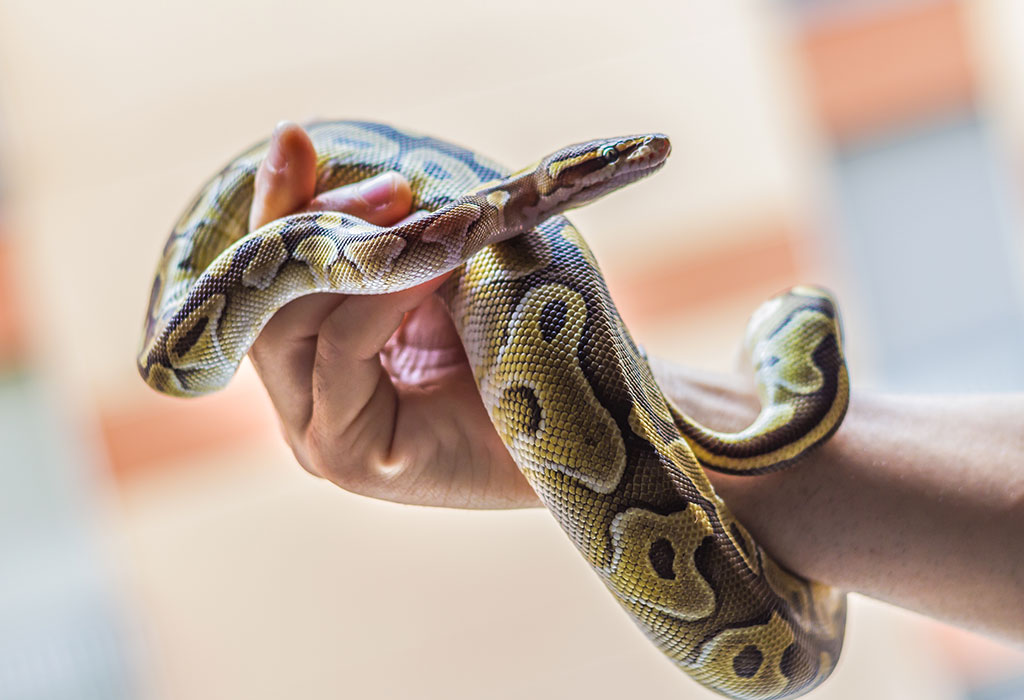The range of emotions a pet snake can express is restricted. Even though they don’t exhibit emotions as cats or dogs do, they nonetheless enjoy their owners’ presence. Fear and aggression are the two most obvious feelings that pet snakes experience. However, there are other feelings as well, such as surprise, satisfaction, and enjoyment. So, can pet snakes be affectionate? The answer lies in our article. If you want to know even more about snake affection, scroll down to follow along!
Can pet snakes be affectionate?
Snakes contain a small proportion of the brain cells that mammals do, and the widely accepted idea holds that this reduced size is what allows them to maintain their cold-bloodedness. Given that pet snakes are reptiles, it is reasonable to assume that they lack the same emotional capacities as people and other animals.
The likelihood is that if you leave your pet snake alone, it won’t miss you and will carry on with its existence. Pet snakes are significantly more autonomous than other pets because they may potentially go months without eating or drinking.
Snakes are capable of affection, despite the fact that they may not be bonded. In general, reptiles like to avoid human contact, even snakes. They may grow to be more understanding of their owners, but they are still enigmatic and difficult to read when it comes to emotions. However, some pet snakes could prefer direct touch with their owners because many can be fed by and interact with them physically.
Depending on the species you keep, your pet snake may or may not like to be pet. While some snakes are reserved and actively want to avoid people, others enjoy to receive affection from their owners. When a snake has just finished feeding, you must never approach it, as it can become hostile. The best course of action is to stay away from your snake if it becomes hostile since it might bite you.

How do snakes show affection?
Snakes have several ways to express their love. The most typical method is to rub your head against the person you’re wanting to make affectionate gestures toward; this is known as shaking the head. Snakes can also communicate themselves in other ways, such as by vibrating their bodies, which indicates that they are trying to encircle the thing they are feeling affection for.
Another typical snake exhibition technique is known as “sneaking,” in which the snake approaches its owner from behind and wraps its body around them, placing a loop over their shoulder or neck. If your pet snake exhibits this behavior, accept their offer to show affection by giving them a slow body or head rub.
Although it depends on the snake’s temperament, “hissing” is a relatively common manner to express love for its owner.
The expression of pet snake when it is happy
When the snake rubs its head on the ground or a nearby item, it is one indication that it is content. It can imply that the snake feels secure and at home there. A snake’s tendency to curl up is another indication that it feels content.
The snake can feel quite secure and content if it rolls entirely since the snake coil’s whole shape indicates how secure the snake is. A content snake is also more likely to show signs of alertness and interest in its surroundings and is less inclined to slither into shadows or hide beneath objects like rocks and logs.

How do I show affection to a pet snake?
All you have to do is watch how it behaves and moves naturally. For owners to act in a proper manner, they must be aware of the temperament of their particular animal. Snakes are typically timid animals that avoid social situations with people or other snakes whenever feasible. They want to be alone throughout the night so that no one can bother them, and they like to have a space that they can call their own.
It’s likely that your pet snake doesn’t like you if it’s slithering away from you, stopping in place, or biting you. It will happily accept tender affection from someone who has gained its trust, though it is not malicious.
The owner needs to be careful not to come off as menacing if they want to win the snake’s trust. For your connection to be successful, your pet snake has to feel secure and at ease around you. Before attempting anything with your snake, make sure it is fully aware of what you are doing.
They enjoy food and start to link the nourishment they get from their feeders. It is a straightforward instance of classical conditioning. Since consuming food makes the snake feel good, it starts to link the pre-food object to the food and eventually links the pre-food object to the satisfying experience of eating the food.
Snakes can’t hear anything, but they do smell things, so keeping this in mind as you strive to build a trusting relationship is crucial. The snake will benefit from their owner’s scent because of this. This suggests that snakes are capable of owner recognition, right?
Unfortunately no, as mentioned above, one of the defects of the smaller brain is the reduced memory capacity of snakes. Additionally, snakes are unable to completely identify their owner from their smell. It becomes even more challenging to tell people apart when you take into account the idea that snakes lack powerful vision and hearing.

Bottom Line
There are many different species of snakes in the complicated world of snakes. Snakes are not intelligent enough to understand human feelings like love or affection. So, Can pet snakes be affectionate? They are unable to feel affection for you. They might, however, be empathetic and concerned for you because you are a non-threatening species. This article is unable to address any specific questions concerning the emotions of any particular snakes; it can only discuss some basic ideas on the subject.
You may also like: 7 Types of Snakes for Pets

